RWJ Foundation Awards Equity Planning Grant to Trenton’s Shiloh Baptist Church and Tufts Medical Center
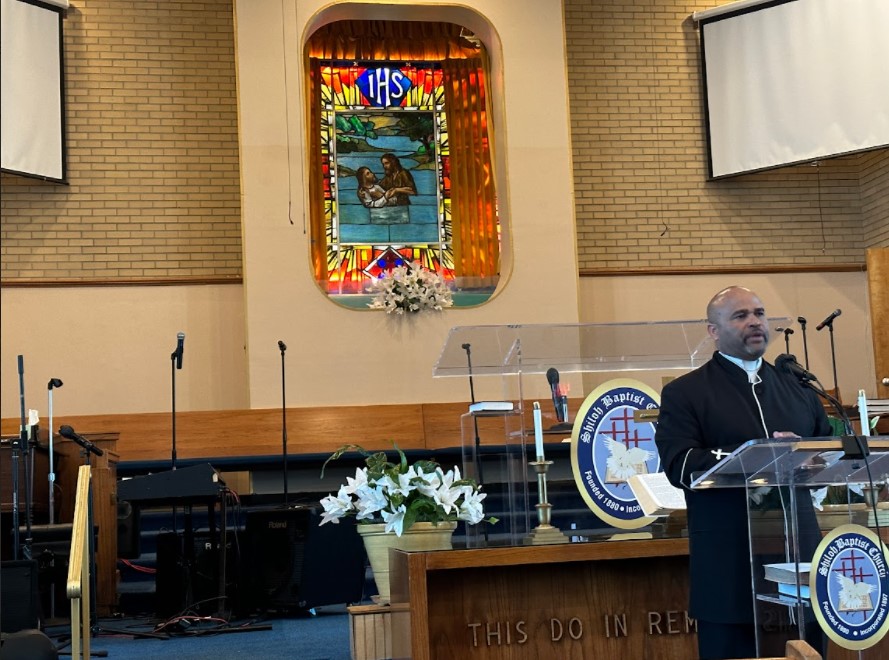
A community’s children are its future: our youngest residents will shape the Trenton of tomorrow, and their generation will undoubtedly lead to tremendous change in the region. Tragically, however, many mothers and children will never see this future due to disparate childbirth and post-natal care outcomes. For example, on average, the maternal mortality rate for Black mothers is 2.6x higher than that of their white counterparts. Likewise, Black children face disproportionately higher rates of infant mortality than their peers. However, advocates in Trenton and beyond are working tirelessly to make these injustices a relic of the past. To improve outcomes for mother and child alike, Shiloh Baptist Church, Tufts Medical Center, and regional partners have converged to spearhead efforts to make Trenton a safe space for birthing, parenting, and beyond.
Systems for Action, a national Robert Wood Johnson Foundation program, awarded the Trenton-based Shiloh Community Development Corporation to expand a church-based home visiting program and address inequities in collaboration with Tufts Medical Center. This project, FAAITH (Faith-leaders Allied and Aligned to Institute Trust in the Home) and HOPE (Healthy Outcomes from Positive Experiences) for equitable systems alignment will support the Shiloh executive director, Reverend Darrell Armstrong’s, efforts to include the research-based HOPE framework into his ministries, to help families and the whole faith community understand the development needs of “the blessing God has given them.”

The project also challenges the public health idea that people’s communities are strictly geographic. “Most people identify their communities by affiliation and culture, not zip code. Yet, most public health funding focuses only on where people live”, noted Dr. Robert Sege, Director of the HOPE National Resource Center and founder of the HOPE framework. Rev. Armstrong noted, “Many of us would include our places of worship as an important community in our lives. This is an opportunity to demonstrate that the unique position of a faith community can impact the health and wellbeing of children and families.” The FAAITH and HOPE project is a one-year pilot study that will give researchers a better understanding of how to add the HOPE framework to faith ministries and test ways to align medical, social services, and public health systems to promote equity.
Throughout the morning, attendees had the opportunity to hear from a distinguished panel, including Dr. Allison Stephens, Principal Investigator and Director of Network and Policy at the HOPE National Resource Center, Dr. Robert Sege of Tufts Medical Center, Amber Robinson of the Center for the Study of Social Policy’s Parent Leaders Network, Mary Catherine E. Arbour of the Brigham and Women’s Hospital Social Care team, Deborah Megaro of Capitol County Children’s Trust, and Laura Gallant of the HOPE National Resource Center. Attendees also had the opportunity to hear from various supporters and collaborators representing healthcare, government, non-profits, and more.
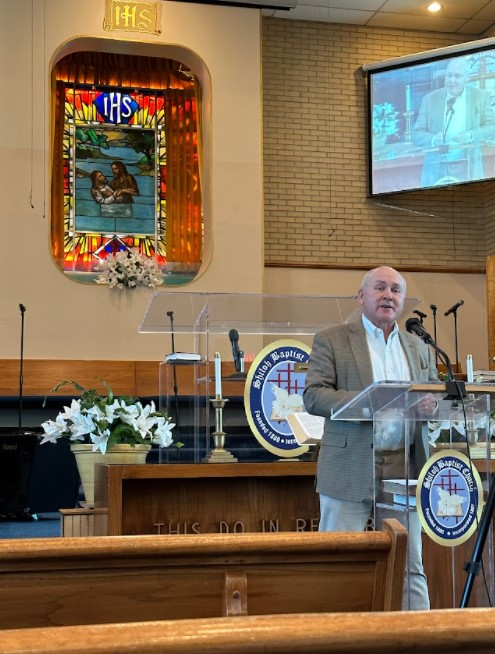
In his comments, Rev. Armstrong noted, “The earliest start in life is going to set a child on the best trajectory, and if we can give everything that the child and family need at the earliest stages of their lives, we are setting them up for success as opposed to adverse childhood experiences, which we know leads to all kinds of other risk factors. And so we’re not just against abuse. We’re also promoting hope.”
Dr. Allison Stephens, Principal Investigator for this initiative, stated, “We believe that faith-based organizations are important institutions in the community, and as we promote positive child experiences through HOPE, we realized that there are very few organizations or institutions that have the ability to follow a family throughout the entire lifespan and to have interactions with families when they’re experiencing trauma, even inter-generationally. We are thrilled to have the opportunity to do this planning grant so we can demonstrate the impacts and effects that the work that Reverend Armstrong and other faith leaders can have on supporting families.”
Per Mayor of Trenton Reed Gusciora, “New Jersey is a diverse state racially, culturally, and ethnically. But the outcomes of health are so divergent and different. The whole purpose of this planning grant is to see how we can get to equity as much as possible near that mark, to have adverse childhood experiences eliminated across the board so that healthy children can emerge from that experience. I’m really excited about this planning grant, but of course, we’re shooting for the stars and wanting the implementation grant to do the good work that God wants us all to do.”
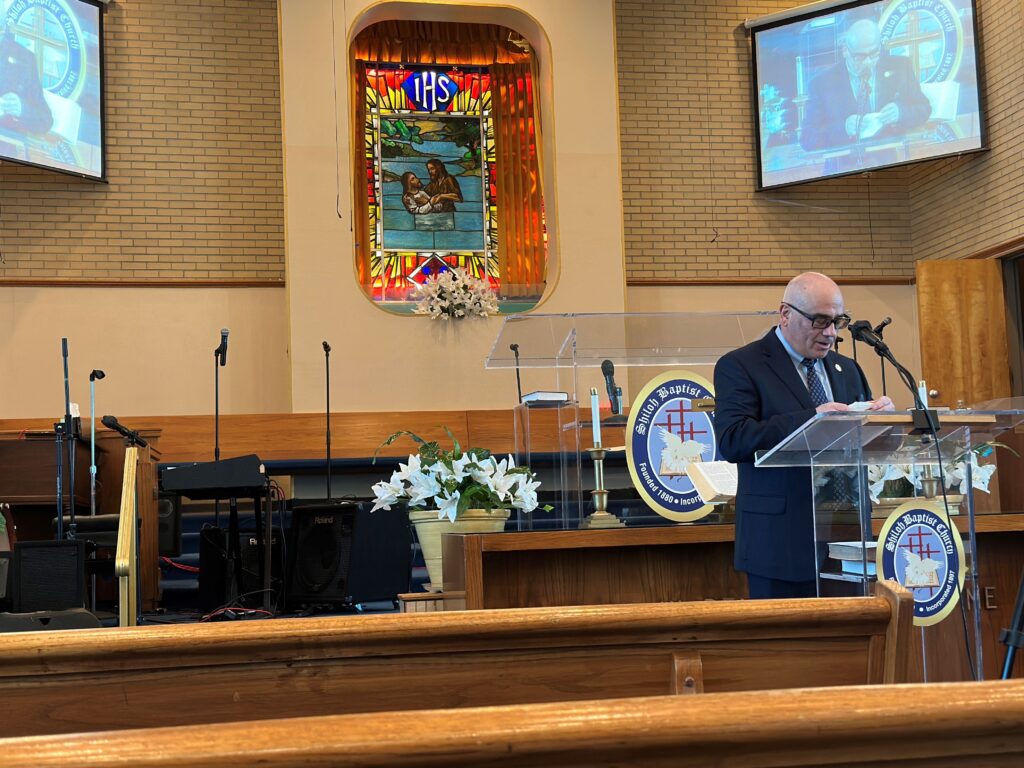
When reflecting on this achievement, Greater Trenton’s George Sowa noted, “As you heard from several, hope, faith, and love are foundational aspects for everyone, no matter where you’re at, no matter who you are, no matter what you do, are foundational aspects for us all. When we get this right, and I’m not saying if because it’s a when issue, it will have generational impacts that will be positive for the future for us all, and we can’t do it alone.”
Rev. Armstrong noted that despite Trenton being the crossroads of the American Revolution, many tourists tend to skip over the community as a destination for history. “Why?” he stated, “Because they think Trenton is unsafe. They think Trenton is not relevant. They think Trenton is not a place they can come to, and those messages have to change.”
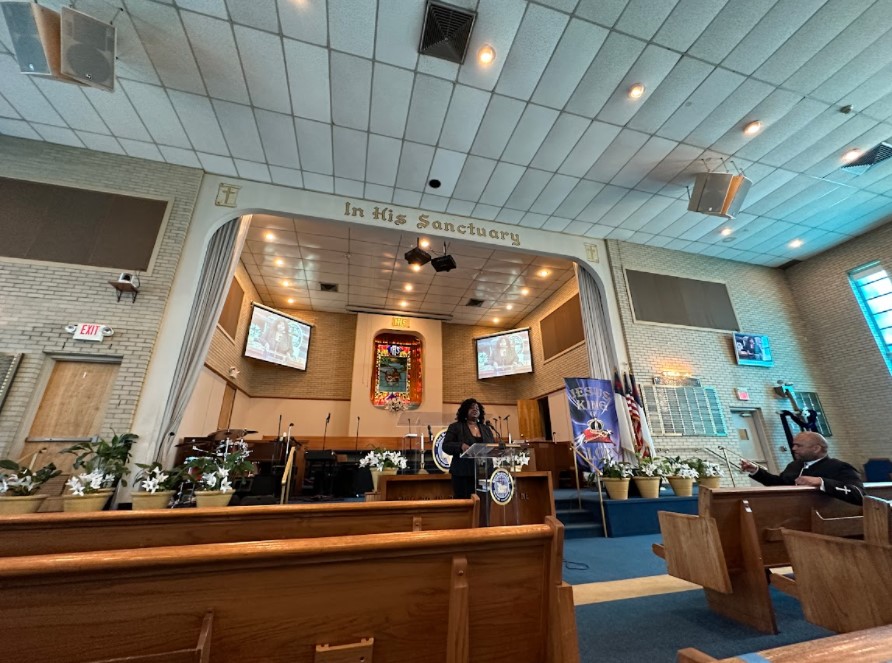
He noted, “There’s something that needs to change in the City of Trenton, and part of that has to do with family safety, opportunities, access to education, and all of that starts at the earliest stages of life. For me, this grant isn’t just about access to healthcare; this is about a full-scale rethinking of how we support children and families. Families want to move into communities where they’re going to have educational opportunities, job opportunities, other recreational opportunities.”
Rev. Armstrong then noted that if change can happen here, it can happen anywhere: “We can bring life into communities because children matter, and how we care for children at the earliest stages of life has everything to do with where they go to school, where they go to college, do they come back to their community and reinvest? Are there jobs in that community? And it’s a cycle that we want to change from a vicious cycle to a nutritious cycle.”
These efforts are a groundbreaking opportunity to provide more equitable health outcomes to the diverse members of our community and assure a healthy, just future for our city’s youngest residents. If you or a representative of your organization would like additional details on bringing these efforts to your community, please get in touch with Shiloh Baptist Church at (609) 695-5700 for further details. The City of Trenton strives every day to be a beacon of hope for residents, young and old, and these efforts assure that even the youngest Trentonian will be given the opportunity to grow up thriving.
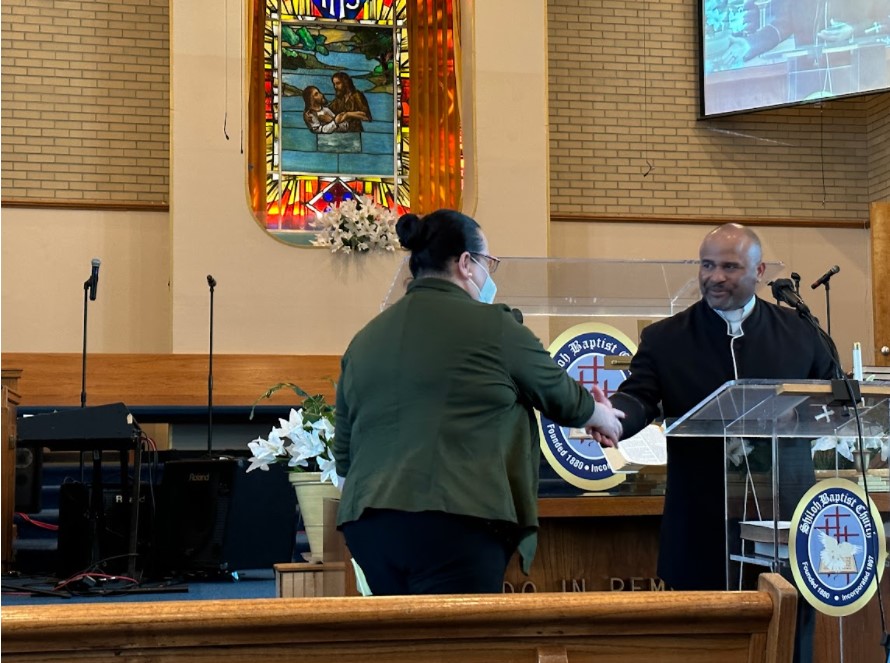
The post RWJ Foundation Awards Equity Planning Grant to Trenton’s Shiloh Baptist Church and Tufts Medical Center first appeared on TrentonDaily.
Powered by WPeMatico
